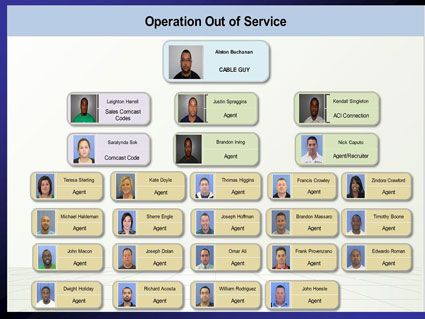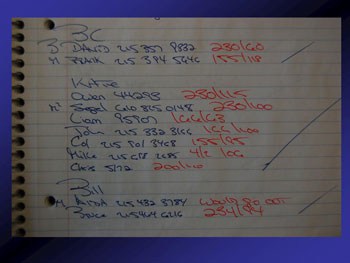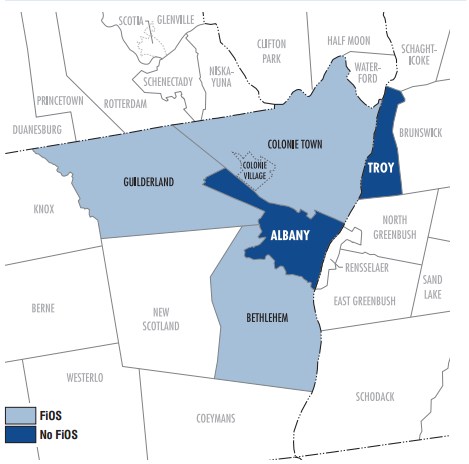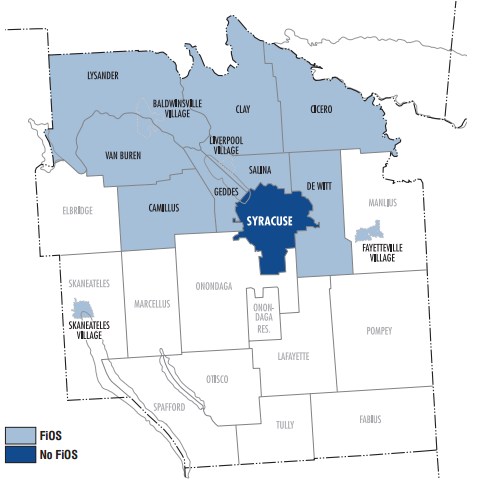 Comcast faces $2.4 million in lost sales after a Philadelphia area crime ring sold nearly 6,000 cable customers discounted cable service and free premium channels in return for a one-time fee they pocketed themselves.
Comcast faces $2.4 million in lost sales after a Philadelphia area crime ring sold nearly 6,000 cable customers discounted cable service and free premium channels in return for a one-time fee they pocketed themselves.
Authorities have arrested five men and are looking for 18 others after uncovering the scheme. Prosecutors have been pouring over streams of text messages sent back and forth between members of the “sales crew” referencing strippers, weapons, and luxury goods. One exchange advised one alleged member to destroy “the book” naming customers as police closed in.
Despite pleas to stay “off the map” to avoid attracting attention, at least some of the alleged crooks could not help themselves, some splurging on top dollar luxury watches, autos, technology, and weekends in Atlantic City and Miami Beach.

Prosecutors dubbed the busting of the alleged crime ring “Operation Out of Service.” (Image: Montgomery County District Attorney)
Authorities have since learned the scam was run through “a secret computer” installed in a Comcast subcontractor’s office in Upper Moreland. Customers were approached on the street or in area establishments and offered discounted cable service with free premium movie channels in return for $150.
After payment, the alleged perpetrators logged into Comcast’s account management system and activated channels and changed customer records.
Comcast did not catch on until one of their own employees was solicited while she sat in a beautician’s chair. The employee reported it to Comcast’s security department.
Prosecutors have since released many additional sordid details, primarily focused around another Comcast subcontractor, which appears to be the cable company’s latest weak link:
This corrupt organization was headed by Alston Buchanan of Philadelphia, PA (DOB 10/07/1983). Buchanan designed, implemented and controlled the organization that utilized compromised Comcast technician identifications (IDs) to apply promotional discounts onto Comcast customer accounts. When used legitimately, the IDs allow Comcast personnel to authorize services, such as premium cable channels or other promotions, to new or existing customers. Buchanan obtained these unique IDs from a number of sources, including from a terminated employee and an employee on disability. In one instance, Buchanan paid a Comcast subcontractor $5,000 in exchange for her user ID. This arrangement was brokered by Leighton Harrell of Philadelphia, PA (DOB 1/17/1986).
Once Buchanan had the IDs, he could access the billing accounts for Comcast customers and lower their payments and/or provide them with additional services without Comcast’s knowledge. Those involved in the scheme paid various amounts to Buchanan and his agents ranging from $100.00 – $200.00 to manipulate the billing and services of their Comcast accounts. The investigation determined there were 5,795 accounts affected over the course of a year from April 2011 to April 2012, with a revenue loss to Comcast Cable of $2,401,673. The effected Comcast accounts were located throughout the Delaware Valley with the majority in Montgomery, Philadelphia, Delaware and Bucks counties.
 Buchanan was familiar with Comcast’s billing system, because he was employed by Comcast as a dispatcher from May 2007 through March 2008 and as a dispatcher for Advanced Communications, Incorporated (ACI), a Comcast subcontractor, from October 2009 to July 2010. In 2010, Comcast began investigating an identical scheme of billing manipulation through unauthorized promotions and believed that Buchanan was responsible.
Buchanan was familiar with Comcast’s billing system, because he was employed by Comcast as a dispatcher from May 2007 through March 2008 and as a dispatcher for Advanced Communications, Incorporated (ACI), a Comcast subcontractor, from October 2009 to July 2010. In 2010, Comcast began investigating an identical scheme of billing manipulation through unauthorized promotions and believed that Buchanan was responsible.
Earlier this year, Comcast learned this same scheme was being perpetrated when a Comcast employee reported the fraudulent use of IDs to obtain services. An internal investigation by Comcast revealed that Nicholas Caputo of Virginia Beach, VA (DOB 5/28/1981) was soliciting customers to provide one-time payments in exchange for a reduction of their Comcast bills. Comcast Security, working with ACI, determined that the account manipulations were originating from the ACI Business Services Router located in the local office for ACI in Hatboro, Upper Moreland Township.
On April 9, 2012, ACI searched the data closet where the Business Services Router was stored. Upon checking the closet, an unauthorized computer tower was discovered secreted in the corner. This unauthorized computer tower was hardwired to the modem in the data closet which, in turn, was connected to the Business Services Router in the closet. Accordingly, the hidden computer tower provided unauthorized access into the Comcast billing accounts. The investigation revealed that the website “LogMeIn” was used to gain remote access to the unauthorized computer tower. Ultimately, the computers located in Buchanan’s apartment were found to have accessed the “LogMeIn” accounts associated with the hidden computer tower.

“The Book” the alleged ringleaders wanted destroyed at all costs. (Image: Montgomery County District Attorney)
Comcast’s investigation revealed that Buchanan had an inside connection to ACI through Kendall Singleton of Philadelphia, PA (DOB 7/03/1986), an ACI employee. On April 9 2012, an unrelated power outage occurred at the ACI office which caused the shutdown of the unauthorized tower. Knowing that the unauthorized tower would have to be turned-on, Comcast Security installed a hidden camera to monitor the closet. The next day, Singleton was seen on the camera entering the area of the closet and stooping down in the area of the unauthorized computer tower. After the computer was re-booted, 96 customer billing accounts were accessed and manipulated within the following hour.
During the course of the investigation, Montgomery County Detectives served search warrants in several locations including the Philadelphia home of Buchanan and Richard Justin Spraggins (DOB 5/22/1983), resulting in the recovery of $103,000.00 cash in an attaché case, computers, cell phones and handwritten ledgers that contained records of the theft scheme, including the agents working for them. Both Buchanan and Spraggins were in possession of these ledgers. Analyses of the phones, computers and ledgers revealed the depth and scope of this corrupt organization, and extensive internal communications within the organization pertaining to the illegal scheme.
An investigation into the bank accounts of Buchanan and Spraggins revealed additional evidence of the profitability of the organization’s illegal scheme. For example, a review of Buchanan’s checking account from December 2010 through April 2012 revealed 748 deposits totaling $221,133.29. Of these 748 deposits, only 175 were not deposits of $150.00 or increments thereof. Notably, $150.00 was the usual fee charged for the illegal billing manipulation.
Buchanan, Spraggins, Caputo, Harrell, Irving and Singleton are charged with Corrupt Organizations, Dealing in Proceeds of Unlawful Activity, Criminal Conspiracy, Theft of Services, Theft by Unlawful Taking, Receiving Stolen Property, Unlawful Use of Computer, Computer Theft, Computer Trespass, Criminal Use of Communication Facility and Possessing Instruments of Crime. Arrest warrants have been issued for more than a dozen others who served as agents in this corrupt organization.
Preliminary hearings are scheduled for September 14, 2012 at 9:30 AM before Magisterial District Judge Jay S. Friedenberg in Willow Grove, Upper Moreland Township. These cases will be prosecuted by the Captain of the Economic Crimes Team, Assistant District Attorney John F. Walko.
Comcast has obtained a complete list of customers who paid for the discounts or free channels, but does not expect to pursue charges or retroactive payments. The company said it would work with customers to transition them to “authorized packages” in the coming weeks.
[flv width=”640″ height=”380″]http://www.phillipdampier.com/video/KYW Philadelphia Cable TV Conman 8-8-12.mp4[/flv]
KYW in Philadelphia managed to score a short interview with alleged ringleader Alston Buchanan, who called himself a modern day Robin Hood. Of course, Robin Hood didn’t splurge on cars, hookers, and fancy watches, as prosecutors allege members of the cable crime ring did. (2 minutes)
 America’s worst-rated cable company is facing an apparent customer backlash on two fronts — its introduction of usage caps and at least one disgruntled unidentified citizen who mailed Mediacom a white powdery substance that forced a temporary closure of one hospital and left two Mediacom employees and two Washington County, N.C. sheriff’s deputies quarantined Wednesday.
America’s worst-rated cable company is facing an apparent customer backlash on two fronts — its introduction of usage caps and at least one disgruntled unidentified citizen who mailed Mediacom a white powdery substance that forced a temporary closure of one hospital and left two Mediacom employees and two Washington County, N.C. sheriff’s deputies quarantined Wednesday. In fact, the largest costs Mediacom faced included:
In fact, the largest costs Mediacom faced included:

 Subscribe
Subscribe










